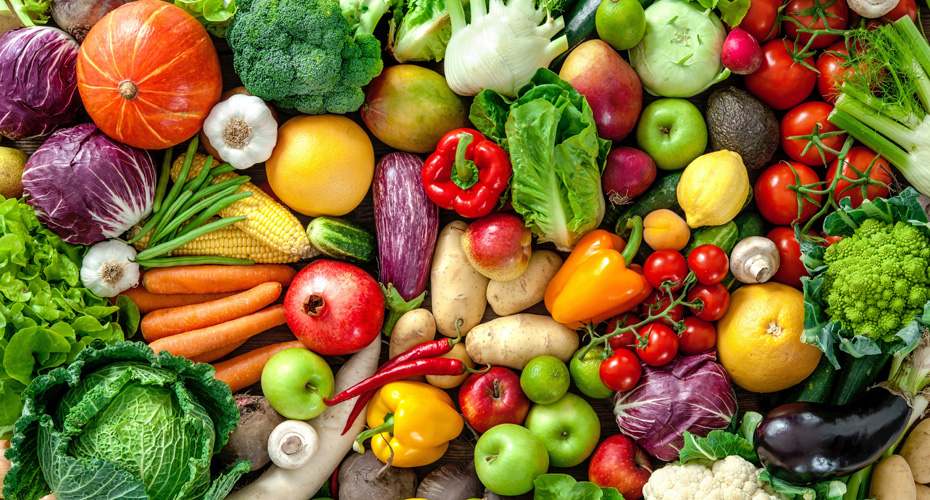Prebiotics and Gut microbiome for health and exercise performance
We've discovered that dietary nitrate is a prebiotic that can reduce inflammation and the risk of illness. Find out more in this video on omics research in Public Health and Sport Sciences.
Current research
Prebiotics

Prebiotics and mucosal immunity
Travelling and training regimes expose athletes to multiple stressors, making them vulnerable to respiratory infections. Getting sick impacts athletes’ ability to train and play, reducing their performance in competitions.
Many studies show a link between increasing numbers of respiratory infection cases and lower levels of immunity molecules in our saliva (IgA). Current evidence shows that probiotic supplementation (live bacteria) can reduce infection incidence.
However, little is known about a specific type of fibres named prebiotics, which can feed these beneficial gut bacteria to increase mucosal immunity.
This study aims to measure the effects of prebiotic supplementation on athletes’ mucosal immunity markers and their incidence of respiratory infections.
Project partners
This work is being carried out by Dr Luciana Torquati, Dr Sarah Jackman and Professor Jo Bowtell.
Exercise performance

Gut microbiome and exercise performance
Gut microbiome’s role in exercise performance is an emerging field with limited empirical data. There is a need for evidence to demonstrate if, and how, the gut microbiome can improve exercise performance.
This study aims to elucidate whether dietary manipulation can elucidate the role of gut microbiome and its metabolites on exercise endurance capacity.
Project partners
This work is being carried out by Dr Luciana Torquati and Professor Jo Bowtell and is funded by the British Nutrition Foundation.
Gut barrier function
Prebiotics and Gut barrier function
The increase in antimicrobial resistance is estimated to become the leading cause of death by 2050. Thus, cost-effective preventive approaches are needed to control the incidence of infections to reduce mortality.
Immunocompromised patients, such as cancer patients and survivors, are at increased risk of infections. Early detection, prevention and treatment are key to improve the outcome of both bacterial and fungal diseases.
Can gut bacteria reduce infections?
Beneficial gut bacteria could play a role in reducing the risk of infections by promoting mucosal immunity, the first-line protection against pathogens. These bacteria ferment prebiotic fibre into short-chain fatty acids (SCFA), which have potent anti-inflammatory and immunomodulatory effects.
SCFAs can stimulate mucosal B-cells activation in gut-associated lymphoid tissue, which can disseminate to distant mucosal tissues to express secretory IgA. In addition, SCFA are the main energy source for enterocytes and promote gut barrier function and mucosal integrity – two key aspects that stop pathogens infection and migration into the bloodstream.
Our research
This project aims to understand whether a prebiotic fibre intervention is able to increase SCFA-producing bacteria and markers of mucosal immunity in humans, including markers of gut barrier function and relative abundance of gut microbial and fungal species.
We will also measure feasibility, intervention safety, compliance and participants’ feedback, which are key aspects to inform the scale-up of this study to target at-risk populations that can ultimately translate findings into clinical practice.
Project partners
This project is funded by the Royal College of Physicians and conducted by Dr Luciana Torquati.
Dietary nitrate

Dietary fibre and inorganic nitrate: implications for the gut microbiome and vascular health
Metabolism of specific nutrients is dependent on non-human cells (oral and gut bacteria), with consequences for the physiological responses in the human host. For example, only gut bacteria can digest non-fermentable dietary fibres to produce mostly acetate, which is beneficial for the host’s inflammatory response and potentially vascular tone. Likewise, oral bacteria readily reduce nitrate to form bioactive nitrite that can be further reduced to a potent vasodilator nitric oxide (NO) in several tissues including bacterial nitrite reduction in the gut as part of the entero-salivary cycle.
Both acetate and NO can activate endothelial NO synthase (eNOS) pathway, which can improve flow-mediated dilation in humans. Thus both dietary fibre and nitrate intake have the potential to improve vascular outcomes in isolation. However, the joint effects of these nutrients have not been yet investigated.
This project aims to investigate the combined and independent effects of dietary nitrate and inulin (fermentable fibre) on vascular tone (blood pressure and flow-mediated dilatation), plasma and saliva NO biomarkers, plasma acetate as a fibre metabolite, and the gut microbiome composition.
Project partners
This work is being conducted by Jessica Virgili at the University of Exeter under the supervision of Dr Luciana Torquati, Prof Anni Vanhatalo, Dr Bert Bond and A/Prof David Vauzour. The project is funded by the Rank Prize Fund and the University of Exeter.



